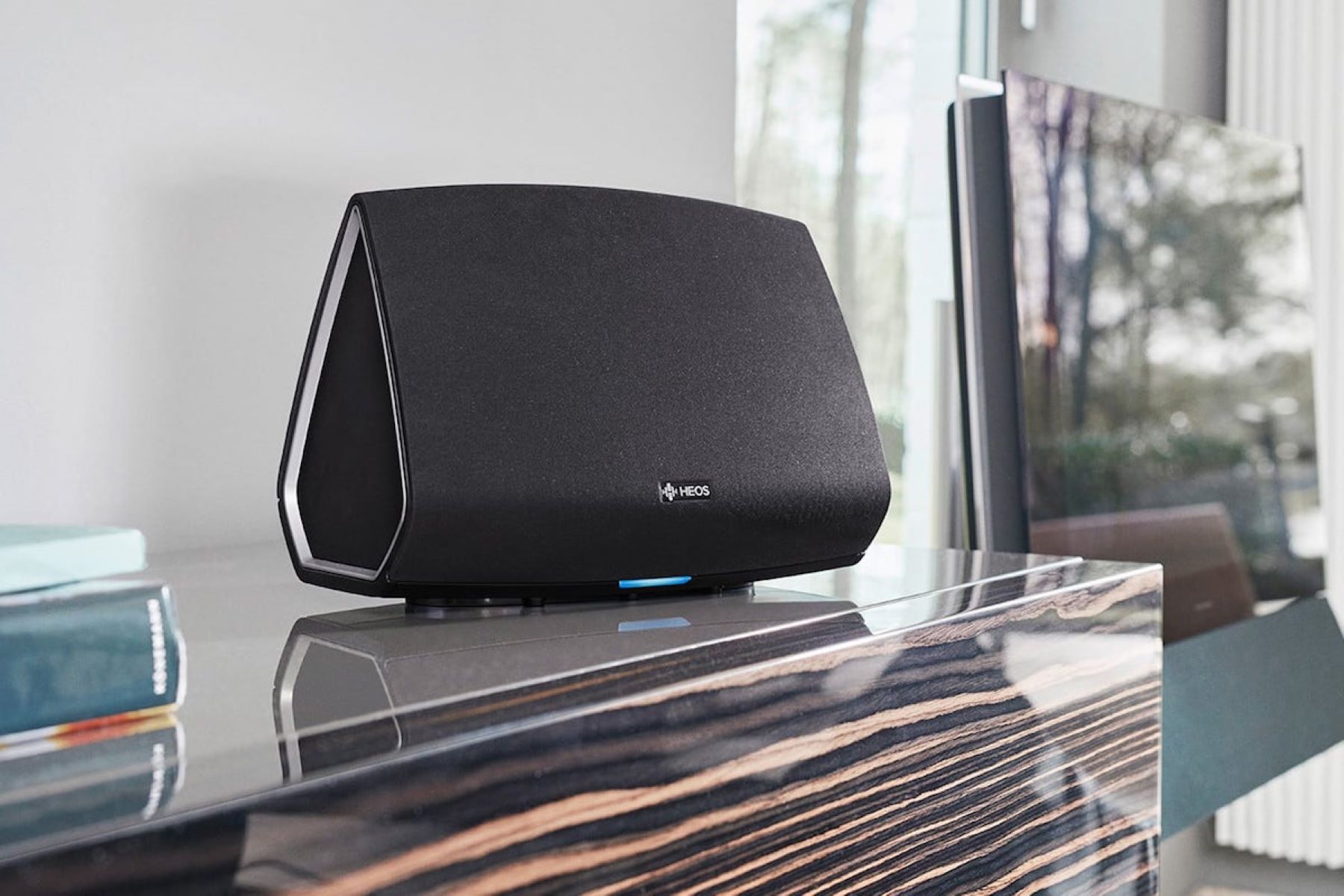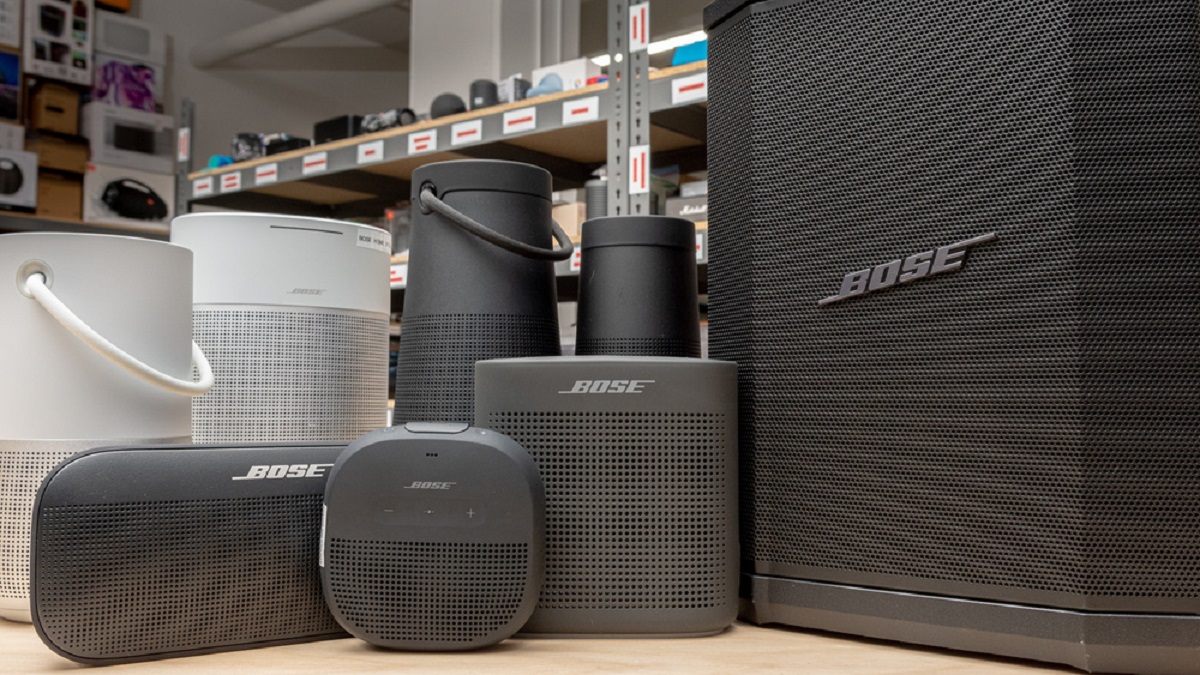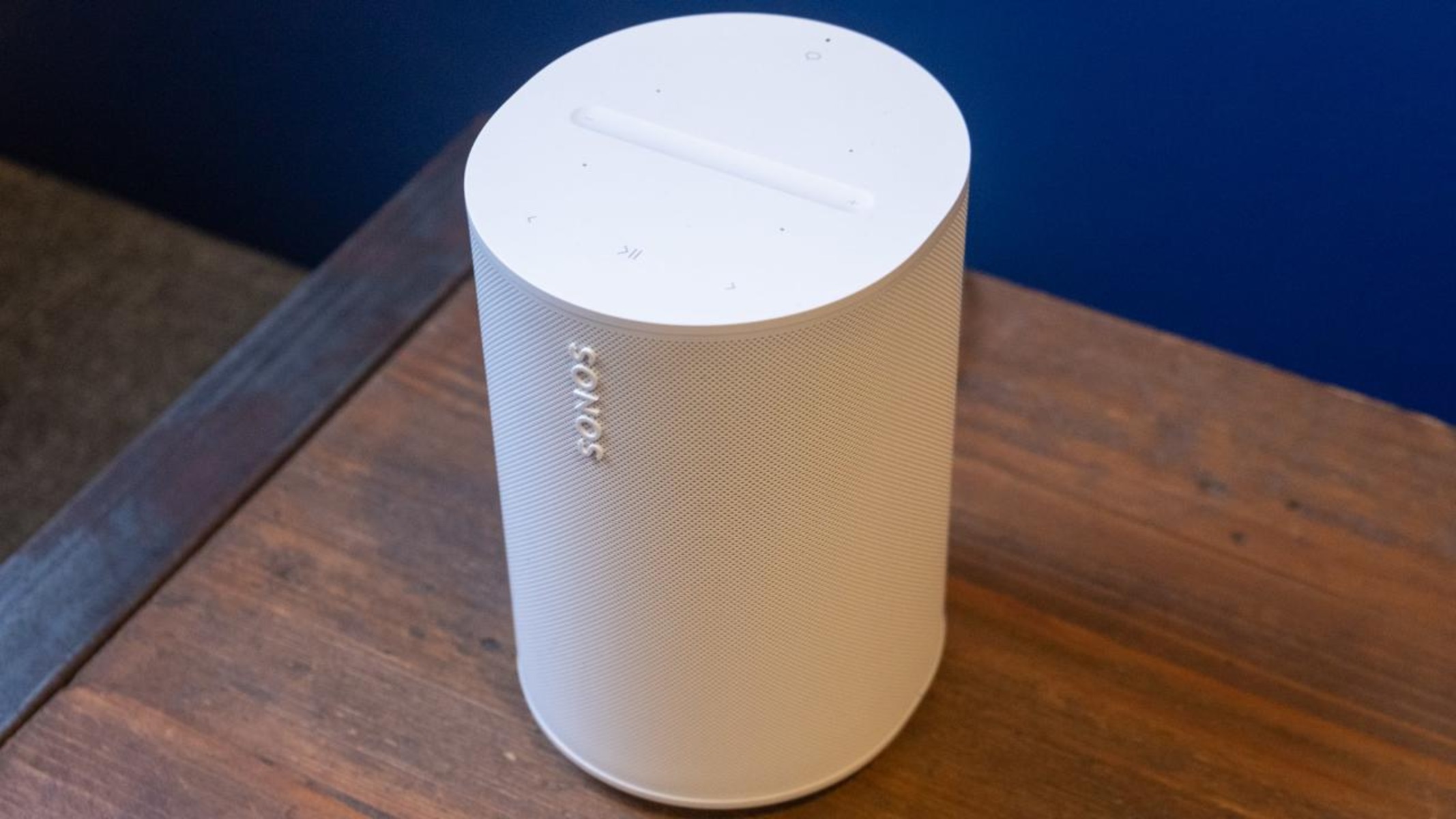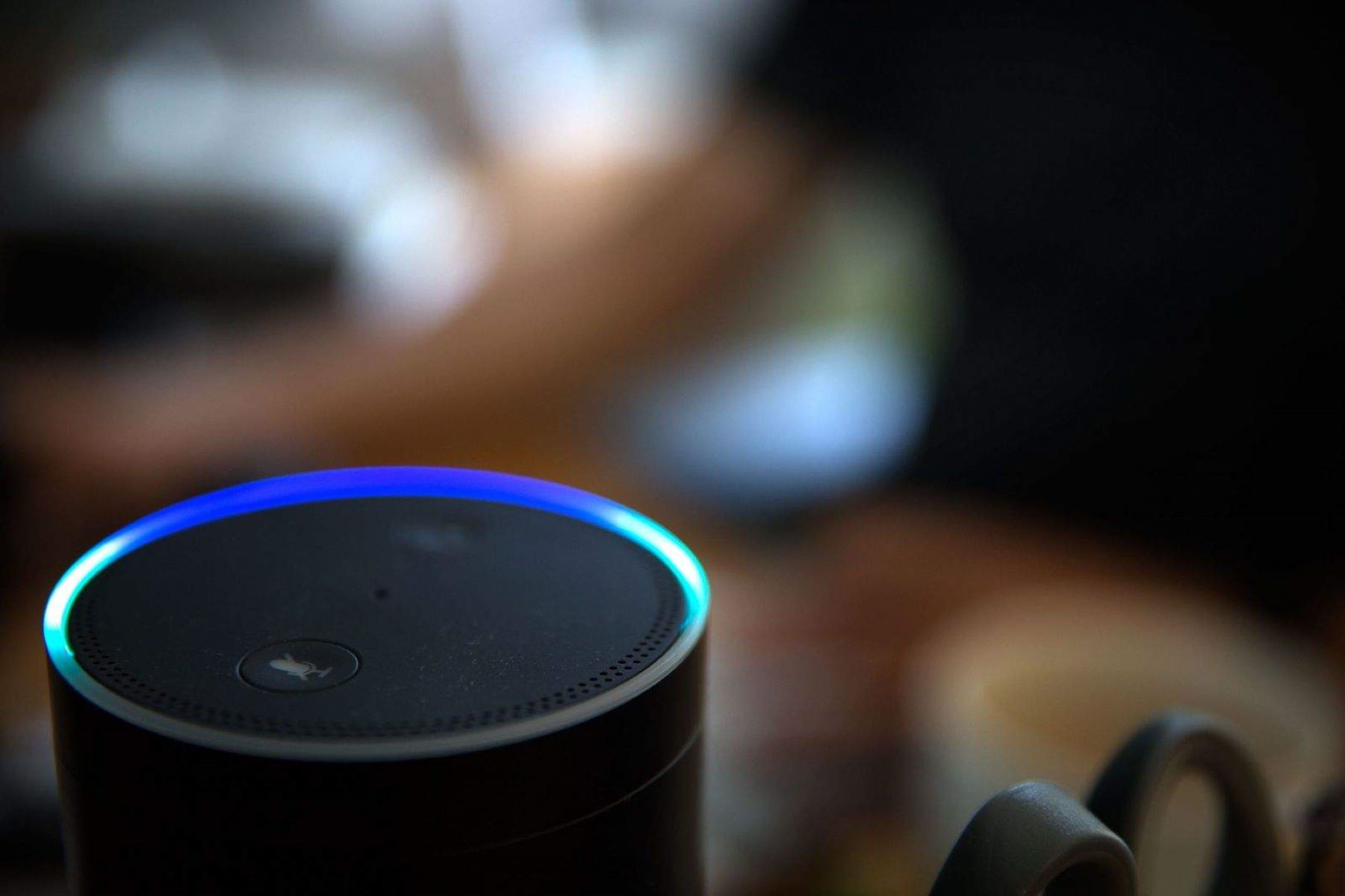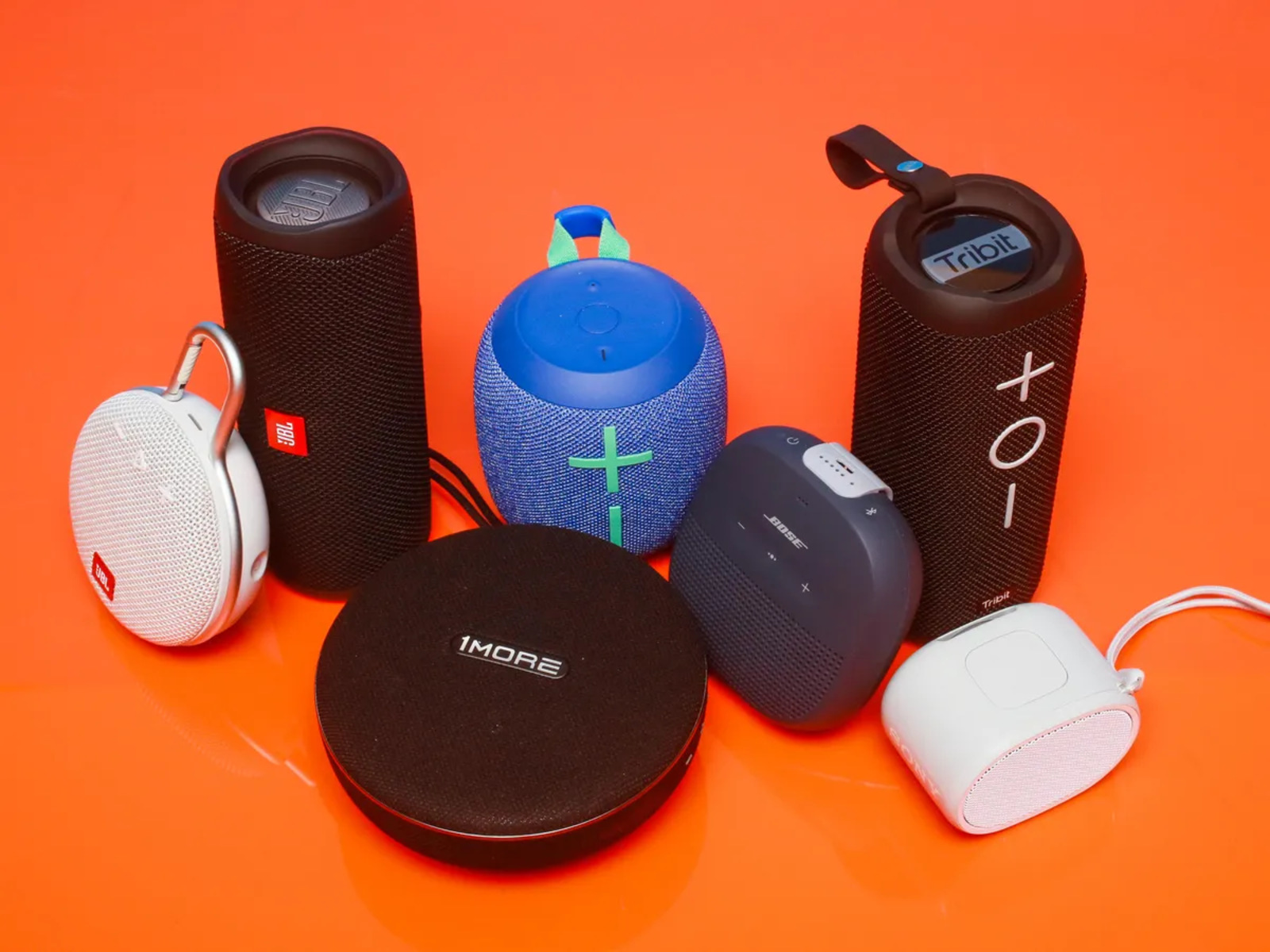Introduction
Smart speakers have revolutionized the way we interact with technology in our everyday lives. These innovative devices have become increasingly popular, offering a wide range of features and functionalities that can enhance our homes and simplify various tasks. But what exactly is a smart speaker?
A smart speaker is a voice-controlled device designed to deliver information, play music, and perform various tasks through voice commands. It acts as a virtual assistant, responding to your voice and providing answers to your questions, weather updates, news, and much more. With their sleek and compact designs, smart speakers blend seamlessly into any home decor, making them an attractive addition to both smart homes and traditional households.
So how do smart speakers work? They utilize advanced technologies such as artificial intelligence and natural language processing to understand and interpret human speech. Once a command or question is received, the smart speaker’s built-in voice assistant, like Amazon’s Alexa, Apple’s Siri, or Google Assistant, processes the information and provides a relevant response or action.
Smart speakers offer a wide range of features and functionalities that make them versatile and useful in numerous ways. They can stream music from popular platforms like Spotify, act as a personal assistant to schedule appointments and set reminders, control smart home devices such as lights and thermostats, and even answer general knowledge questions. The possibilities are endless, and their convenience has made them a valuable asset in modern homes.
Voice assistants play a pivotal role in smart speakers, acting as the interface between users and the device. They recognize and process voice commands, allowing users to interact with the speaker effortlessly. The most popular voice assistants include Amazon’s Alexa, Apple’s Siri, and Google Assistant, each with its own set of capabilities and compatibilities. These voice assistants continuously improve through over-the-air software updates, gaining new skills and expanding their knowledge base to provide an increasingly personalized experience.
The benefits and advantages of using smart speakers are numerous. Firstly, they offer hands-free operation, allowing users to control various tasks and access information without the need to physically interact with a device. This proves especially useful while cooking, cleaning, or carrying out other activities where hands may be occupied.
Additionally, smart speakers can enhance productivity, acting as personal assistants that can manage schedules, set reminders, and provide updates on weather and news. They can also facilitate smart home automation, allowing users to control and monitor various connected devices with simple voice commands.
Definition of a Smart Speaker
A smart speaker is a wireless device that utilizes voice recognition and artificial intelligence technologies to interact with users and perform various tasks. It is a compact and stylish device that fits seamlessly into any living space, offering a multitude of features and functionalities.
At its core, a smart speaker is equipped with a built-in voice assistant that acts as the main interface. This voice assistant, such as Amazon’s Alexa, Apple’s Siri, or Google Assistant, listens to voice commands and responds accordingly. It understands natural language processing, allowing users to speak naturally and ask questions or give instructions using their own words.
Unlike traditional speakers, which primarily focus on delivering high-quality audio, smart speakers aim to provide a holistic and interactive experience. They integrate advanced technologies that enable users to control and manage various aspects of their daily lives, from playing music and checking the weather to controlling smart home devices and answering general knowledge inquiries.
A key component of a smart speaker is its ability to connect to the internet wirelessly. This connectivity allows the device to access a vast amount of information, stream music from online platforms, and interact with other smart devices around the house. Popular smart speaker models typically feature Wi-Fi capabilities, which enable seamless integration into existing home networks.
It’s important to note that the term “smart speaker” is often used interchangeably with “smart home assistant” or “voice-controlled speaker.” While the primary purpose of a smart speaker is to provide voice-controlled functionality, it can also serve as a central hub for controlling and managing other smart devices in the home, such as smart lighting systems, thermostats, and security cameras.
Overall, a smart speaker is an intelligent device that brings convenience, entertainment, and control to our fingertips. It combines advanced technologies with a sleek and compact design, allowing users to interact with their homes and the digital world effortlessly. Whether it’s enjoying your favorite songs, getting the day’s news headlines, or simply setting a timer in the kitchen, a smart speaker is there to make your life easier and more enjoyable.
How Does a Smart Speaker Work?
Understanding how a smart speaker works involves exploring the various technologies and components that enable its functionality. While different models may have slight variations, the basic principles remain the same.
The first key technology in a smart speaker is voice recognition. When a user speaks a command or asks a question, the smart speaker’s built-in microphone picks up the sound waves and converts them into an electrical signal. This signal is then processed by the device’s hardware and software to extract the voice data.
Natural language processing (NLP) is another essential component in the functioning of a smart speaker. The voice data captured by the microphone is analyzed using complex algorithms to identify the actual words spoken, interpret their meaning, and generate an appropriate response. This enables the smart speaker to understand commands and questions in a more human-like manner.
Once the voice data is interpreted, the smart speaker’s voice assistant, such as Alexa or Siri, utilizes artificial intelligence (AI) to generate a response. This involves accessing a vast amount of information from various sources, including the internet, to find the most relevant and accurate answer or action to the user’s request.
To deliver the response, the smart speaker uses its built-in speaker system to convert the generated response into audible sound waves. The sound quality and volume can be adjusted by the user to suit their preferences and the environment in which the smart speaker is placed.
Furthermore, smart speakers require an internet connection to access information, stream music, and interact with online services. This connection can be established through Wi-Fi or, in some cases, Bluetooth technology. The internet connectivity allows the smart speaker to constantly update its software, ensuring that it stays up-to-date with the latest features and improvements.
In addition to their primary functionality, many smart speakers also offer compatibility with various smart home devices. These devices, such as smart lights, thermostats, and security systems, can be controlled and managed through the smart speaker using voice commands. This integration allows users to create a seamless and interconnected smart home ecosystem.
It’s worth noting that smart speakers prioritize user privacy and security. The voice data collected by the device is typically encrypted and sent securely to the cloud for processing. Manufacturers also implement strict security measures to protect user data and prevent unauthorized access.
In summary, a smart speaker works by utilizing voice recognition, natural language processing, artificial intelligence, and internet connectivity to understand user commands and provide appropriate responses. Its integration with other smart devices further enhances its functionality, making it a central hub for controlling and managing various aspects of a smart home.
Features and Functionalities of a Smart Speaker
Smart speakers are packed with a wide range of features and functionalities that make them versatile and useful in numerous aspects of our lives. Let’s explore some of the key features that distinguish these devices:
1. Voice Control: The primary feature of a smart speaker is its ability to be controlled through voice commands. Users can simply speak to the device to play music, get weather updates, set reminders, and much more, without the need for physical interaction.
2. Music Streaming: Smart speakers can connect to popular music streaming platforms, such as Spotify or Apple Music, allowing users to enjoy a vast library of songs and playlists. With voice commands, users can request specific songs, artists, albums, or even create personalized playlists.
3. Information and Search: Smart speakers can provide answers to general knowledge questions by searching the internet in real-time. Users can inquire about various topics, such as historical facts, sports scores, movie details, and much more, receiving instant and accurate responses.
4. Personal Assistant: Smart speakers act as personal assistants, helping users manage their day-to-day activities. They can set alarms, reminders, and timers, making them particularly useful in the kitchen for cooking or keeping track of time.
5. Smart Home Integration: Many smart speakers offer compatibility with various smart home devices. Users can control lights, thermostats, locks, and security cameras through voice commands, creating a convenient and cohesive smart home ecosystem.
6. Home Automation: With built-in automation capabilities, smart speakers can create customized routines and automate tasks. For example, users can set up routines for waking up in the morning, where the smart speaker can turn on the lights, play the news, and provide weather updates.
7. Voice Calls and Messaging: Some smart speakers allow users to make hands-free voice calls to friends and family members who also have compatible devices. Messaging capabilities enable sending and receiving text messages through voice commands.
8. Multi-room Audio: Smart speakers can be synchronized to play the same music in multiple rooms simultaneously. This feature allows users to create a seamless audio experience throughout their home during parties or gatherings.
9. Digital Voice Notes and Lists: Users can create and manage digital voice notes and to-do lists through their smart speaker. This feature is handy for capturing quick reminders or creating shopping lists on the go.
10. Continuous Improvements: Smart speakers receive regular software updates, allowing for continuous improvements and the addition of new features. Manufacturers strive to enhance the user experience and extend the capabilities of their devices through these updates.
These are just a few examples of the many features and functionalities that smart speakers offer. Their versatility and integration with other devices make them valuable assets in modern homes, offering convenience, entertainment, and increased productivity.
Voice Assistants and their Role in Smart Speakers
Voice assistants play a crucial role in the functionality and user experience of smart speakers. These intelligent software programs, such as Amazon’s Alexa, Apple’s Siri, or Google Assistant, are designed to understand and interpret human speech, enabling users to interact with their smart speakers effortlessly.
The primary function of a voice assistant is to recognize and process voice commands. When a user speaks a command or asks a question, the microphone on the smart speaker picks up the sound waves and converts them into electrical signals. These signals are then processed by the voice assistant’s algorithms to extract the voice data and identify the user’s intent.
One key aspect of modern voice assistants is their ability to understand natural language processing (NLP). This means that they can comprehend and interpret spoken language in a more human-like manner, allowing users to speak naturally and with less constraint. Voice assistants analyze the voice data using complex algorithms to identify the actual words spoken, interpret their meaning, and generate an appropriate response.
Voice assistants not only process voice commands but also provide spoken responses or perform actions in response to user requests. They use artificial intelligence (AI) to generate accurate and relevant responses by accessing a vast amount of information stored in their databases or by conducting real-time internet searches. This allows users to ask questions, get weather updates, control smart home devices, play music, and perform a multitude of other tasks hands-free.
Furthermore, voice assistants continuously learn and improve over time. Software updates are issued by the manufacturers to enhance the capabilities of the voice assistants, expanding their knowledge base and adding new features. This means that the more users interact with their smart speakers, the smarter and more personalized the voice assistant becomes.
The role of voice assistants extends beyond just the smart speaker itself. They can also be integrated with other devices and services, such as smartphones, tablets, and smart TVs, allowing users to have a consistent and seamless experience across multiple platforms. For example, users can issue voice commands to their smart speaker to make hands-free phone calls, send messages, or control their entertainment systems.
Overall, voice assistants are the vital component that bridges the gap between users and their smart speakers. They enable natural and intuitive interactions, transforming the way we interact with technology in our homes. By understanding and responding to voice commands, voice assistants enhance convenience, provide useful information, and empower users to control and manage various aspects of their digital lives. With continued advancements, voice assistants will continue to play a pivotal role in making technology more accessible and user-friendly for everyone.
Benefits and Advantages of Using a Smart Speaker
Smart speakers have gained immense popularity in recent years, and for good reason. They offer a multitude of benefits and advantages that enhance our daily lives in various ways. Let’s explore some of the key benefits of using a smart speaker:
1. Hands-Free Operation: One of the most significant advantages of smart speakers is their hands-free operation. With just your voice, you can control music playback, get weather updates, set timers, and perform numerous tasks without the need to physically interact with a device. This is particularly useful when your hands are occupied or when you want to multitask.
2. Convenience and Time-Saving: Smart speakers act as virtual assistants, helping you with various tasks and saving you valuable time. You can ask about your schedule, set reminders, create to-do lists, and even order products online, all with simple voice commands. This convenience streamlines your daily routines and allows you to focus on other important activities.
3. Entertainment and Music Streaming: Smart speakers are excellent entertainment companions. You can enjoy your favorite music, podcasts, or audiobooks by simply requesting them through voice commands. With access to popular music streaming services, you have a vast collection of songs and genres at your fingertips, creating a personalized and immersive audio experience.
4. Smart Home Integration: Many smart speakers are compatible with various smart home devices. Through voice commands, you can control lights, thermostats, security systems, and more. This integration brings convenience and automation to your home, allowing you to create customized routines and control multiple devices simultaneously.
5. Voice Assistance and Information: Smart speakers provide instant access to a wealth of information. You can ask questions, get real-time weather updates, news briefings, sports scores, and even trivia. Voice assistants provide accurate answers from reliable sources, helping you stay informed and providing a seamless and hands-free information retrieval experience.
6. Enhanced Productivity: Smart speakers act as personal assistants, helping you stay organized and productive. You can schedule appointments, set reminders, create and manage calendars, and even make hands-free phone calls. These features enable you to stay on top of your tasks and improve your overall productivity.
7. Accessibility and Inclusivity: Smart speakers promote accessibility for individuals with disabilities or those who prefer voice-based interactions. They allow for easier control of devices and access to information, making technology more inclusive and user-friendly for a wider audience.
8. Continuous Improvement: Smart speaker software is regularly updated by manufacturers, ensuring that you always have the latest features and improvements. These updates often introduce new functionalities, improve voice assistants’ capabilities, and enhance the overall user experience, keeping your device up-to-date and future-proof.
9. Seamless Integration with Other Devices: Smart speakers can seamlessly integrate with other compatible devices, such as smartphones, tablets, and smart TVs. This integration allows for a cohesive and interconnected ecosystem, where you can control multiple devices using voice commands or enjoy a consistent experience across various platforms.
10. Entertainment for the Whole Family: Smart speakers offer entertainment options suitable for the entire family. You can enjoy interactive games, storytelling, and educational activities that engage and entertain both children and adults, making them a valuable addition to any home.
These benefits and advantages demonstrate why smart speakers have become must-have devices in many households. They simplify daily tasks, enhance entertainment experiences, and provide a convenient and hands-free way to interact with technology in our increasingly connected world.
Popular Smart Speaker Brands and Models
The market for smart speakers is highly competitive, with several reputable brands offering a wide range of models to choose from. Let’s take a look at some of the most popular smart speaker brands and the models that have made a significant impact:
1. Amazon: Amazon’s line of smart speakers is powered by Alexa, their voice assistant. The Amazon Echo is the flagship model, available in various sizes and designs to suit different needs. The Echo Dot offers a more compact and affordable option, while the Echo Show incorporates a display for visual interactions.
2. Google: Google’s smart speakers feature Google Assistant as the voice assistant. The Google Nest Audio offers excellent sound quality, while the Google Nest Mini is a compact and affordable option. The Google Nest Hub Max includes a display, allowing for visual feedback and smart display functionality.
3. Apple: Apple’s smart speaker is the HomePod, powered by Siri. It delivers high-quality sound and integrates seamlessly with other Apple devices, making it an excellent choice for Apple users seeking a unified ecosystem.
4. Sonos: Sonos offers a range of smart speakers known for their exceptional sound quality and multi-room audio capabilities. The Sonos One is a popular choice, featuring built-in voice assistants and compatibility with multiple streaming services.
5. Bose: Bose smart speakers, such as the Bose Home Speaker 500 and the Bose Portable Smart Speaker, deliver impressive audio performance and come with built-in voice assistants like Alexa and Google Assistant.
6. JBL: JBL offers a wide selection of smart speakers with different sizes and features. The JBL Link series, for example, includes models like the JBL Link 20 and JBL Link 300, which provide excellent sound quality and integration with various smart home devices.
7. Samsung: Samsung’s smart speakers, like the Samsung Galaxy Home, offer premium sound quality and integration with other Samsung devices. They incorporate the Bixby voice assistant and aim to create a seamless smart home experience.
8. Lenovo: Lenovo’s smart speakers, such as the Lenovo Smart Display and Lenovo Smart Clock, combine voice assistant functionality with a visual display. These devices provide additional visual interactions, such as displaying recipes or showing weather forecasts.
9. Harman Kardon: Harman Kardon’s Citation series includes smart speakers known for their premium design, powerful sound, and integration with Google Assistant. Models like the Citation One and Citation 500 offer versatility and high-fidelity audio.
10. Sony: Sony’s smart speakers, such as the Sony SRS-XB402M and Sony SRS-XB501G, prioritize sound quality and durability. These speakers feature built-in voice assistants and are designed to withstand outdoor environments.
These are just some of the popular smart speaker brands and models available on the market today. Each brand offers unique features, sound quality, and integration capabilities, allowing users to choose the one that best fits their preferences and requirements.
Smart Speakers in Smart Homes
Smart speakers play a central role in creating a fully connected and intelligent smart home ecosystem. They serve as the control hub, allowing users to manage and interact with various smart devices throughout their homes. Here are some ways smart speakers enhance the functionality and convenience of smart homes:
1. Voice Control of Smart Devices: With a smart speaker as the central command center, users can control and manage their smart home devices using simple voice commands. Whether it’s adjusting the lighting, changing the thermostat settings, or locking the doors, the smart speaker acts as a centralized control point, eliminating the need for multiple apps or manual adjustments.
2. Integration with Smart Home Devices: Smart speakers seamlessly integrate with a wide range of smart home devices, including smart lights, thermostats, door locks, security cameras, and more. Through voice commands, users can control and monitor these devices, creating a cohesive and interconnected smart home environment.
3. Customized Routines and Automation: Smart speakers allow users to set up customized routines and automate tasks within their smart homes. For example, with a single voice command, you can activate a “Good Morning” routine that turns on the lights, adjusts the thermostat, and provides you with a personalized weather forecast and news briefing. This automation saves time and creates a seamless and convenient experience.
4. Whole-Home Audio: Smart speakers can be synced together to create a whole-home audio system. With multi-room audio capabilities, users can enjoy synchronized music playback throughout their home, providing an immersive listening experience during parties or everyday activities.
5. Enhanced Security and Monitoring: Smart speakers can integrate with security systems and cameras, allowing users to monitor their homes remotely and receive real-time alerts. Users can use voice commands to arm or disarm security systems, check camera feeds, or receive updates on any security events within their smart home ecosystem.
6. Information and Assistance: Smart speakers provide instant access to a wealth of information, acting as virtual assistants within the home. Users can ask questions, get weather forecasts, check traffic updates, and receive personalized recommendations through voice commands, making it easy to stay informed and connected without relying on other devices.
7. Family Interactions and Entertainment: Smart speakers cater to the entire family, offering interactive games, storytelling, music streaming, and more. With voice commands, children can engage in educational activities, while adults can enjoy personalized entertainment options, creating a fun and engaging environment for everyone.
8. Seamless Control with Voice Assistants: Voice assistants embedded in smart speakers, such as Alexa, Siri, and Google Assistant, are constantly evolving and gaining new capabilities. They strive to understand user preferences, habits, and patterns, allowing for more personalized and intuitive control of smart devices within the home.
9. Energy Efficiency: Smart speakers can contribute to energy efficiency in smart homes by facilitating the control and optimization of energy-consuming devices. Users can monitor and adjust energy usage through voice commands, ensuring that lights, thermostats, and other appliances are functioning efficiently and only in use when needed.
10. Expandable and Scalable: Smart speakers allow users to expand and scale their smart home ecosystems seamlessly. As new smart devices become available, users can easily integrate them with their existing smart speaker setup, ensuring compatibility and maintaining a unified control system.
With their ability to integrate and control various smart devices, smart speakers truly enhance the functionality, convenience, and connectivity of smart homes. They simplify interactions, automate tasks, and provide an intelligent and seamless experience that brings everyday comfort and efficiency within reach.
Privacy and Security Concerns Associated with Smart Speakers
While smart speakers offer numerous benefits and conveniences, they also raise valid concerns about privacy and security. Users need to be aware of the potential risks associated with these devices. Here are some key privacy and security concerns to consider:
1. Data Collection and Privacy: Smart speakers are always listening for the wake word or command, which means they are constantly capturing and storing voice data. This raises concerns about the privacy and security of these recordings. Manufacturers assure users that voice data is encrypted and treated with strict privacy protocols, but it is crucial to remain vigilant and understand how your data is being collected, stored, and used.
2. Unintended Activation: Smart speakers may inadvertently activate and record conversations or sounds that were not intended to be captured. These unintended activations can occur due to false wake words or misinterpretations of background noise. It is essential to review and adjust the device’s sensitivity settings to minimize the chances of unintended activations.
3. Unauthorized Access to Data: In some cases, unauthorized access to voice recordings and personal data stored by smart speakers has occurred. This can be a result of hacking or vulnerabilities in the device’s security systems. Manufacturers continually work to strengthen security measures, but users should still take precautions, such as using strong and unique passwords for their smart speaker accounts.
4. Voice Recognition Impersonation: Voice data stored by smart speakers can potentially be used to impersonate individuals. Cybercriminals could use stolen voice data for fraudulent activities, such as making unauthorized purchases or gaining unauthorized access to voice-enabled accounts. Users should be cautious and monitor their accounts for any suspicious activity regularly.
5. Eavesdropping and Privacy Breaches: In rare cases, smart speakers have been known to record and transmit sensitive or private conversations accidentally. While manufacturers implement protection mechanisms to prevent this from happening, it is essential to be cognizant of your surroundings and exercise caution when discussing sensitive information within the range of a smart speaker.
6. Third-Party Apps and Services: Smart speakers often integrate with third-party apps and services to provide additional functionalities. However, these integrations can introduce potential security risks. Users should review and understand the permissions and privacy policies associated with any third-party apps they connect to their smart speakers.
7. Firmware and Software Updates: Manufacturers frequently release firmware and software updates to address security vulnerabilities and improve the overall performance of smart speakers. Users should stay up to date with these updates and promptly install them to ensure they have the latest security patches and features.
8. Protecting Wi-Fi Networks: Smart speakers rely on Wi-Fi networks for connectivity and communication. To safeguard against potential security breaches, users should ensure that their home Wi-Fi network is protected with a strong password, uses up-to-date encryption protocols, and implements other recommended security practices.
9. Children’s Privacy: Smart speakers may raise concerns regarding children’s privacy, as they are often used by the whole family. Parents should be cautious about the voice data collected from their children and understand how it is handled by the device manufacturer to protect their children’s privacy and adhere to applicable privacy regulations.
10. Transparency and Control: Manufacturers are becoming more transparent about the data collected and providing users with more control over their privacy preferences. Users should take advantage of privacy settings available in their smart speakers’ accompanying apps or online accounts to tailor the device’s behavior to their comfort level.
As with any connected device, it is essential to be aware of the privacy and security risks associated with smart speakers. By staying informed, implementing recommended security practices, and regularly reviewing privacy settings, users can enjoy the benefits of smart speakers while safeguarding their privacy and maintaining the security of their personal information.
Conclusion
Smart speakers have quickly become a staple in modern households, offering a wealth of features and functionalities that enhance our daily lives. These voice-controlled devices, equipped with advanced technologies and voice assistants, provide convenience, entertainment, and control at our fingertips.
We explored the definition of a smart speaker and how it works, delving into the underlying technologies such as voice recognition, natural language processing, and artificial intelligence. We discussed the features and functionalities of smart speakers, highlighting their hands-free operation, music streaming capabilities, and integration with other smart home devices.
The role of voice assistants in smart speakers was examined, recognizing their pivotal contribution to understanding voice commands, generating responses, and continuously improving through machine learning.
We also discussed the numerous benefits and advantages of using smart speakers, including hands-free operation, convenience, enhanced productivity, and personalized entertainment experiences.
Furthermore, we explored popular smart speaker brands and models, providing an overview of the range of options available on the market.
Smart speakers take smart homes to the next level, seamlessly integrating with various devices and allowing users to control and manage their homes through voice commands. We discussed how these devices enhance the functionality, convenience, and connectivity of smart homes, providing features such as voice control of smart devices, customized routines, whole-home audio, and enhanced security and monitoring.
As with any technological advancement, privacy and security concerns are important to address. We examined some of the potential risks associated with smart speakers, including data collection and privacy, unintended activations, unauthorized access to data, and eavesdropping. It is crucial for users to be informed and take precautions to protect their privacy and ensure the security of their smart speaker devices.
In conclusion, smart speakers have undoubtedly transformed the way we interact with technology in our homes. These devices combine convenience, entertainment, and control into a compact and stylish package. With continued advancements and heightened privacy and security measures, smart speakers will continue to play a central role in creating smart, connected, and personalized living environments for years to come.









